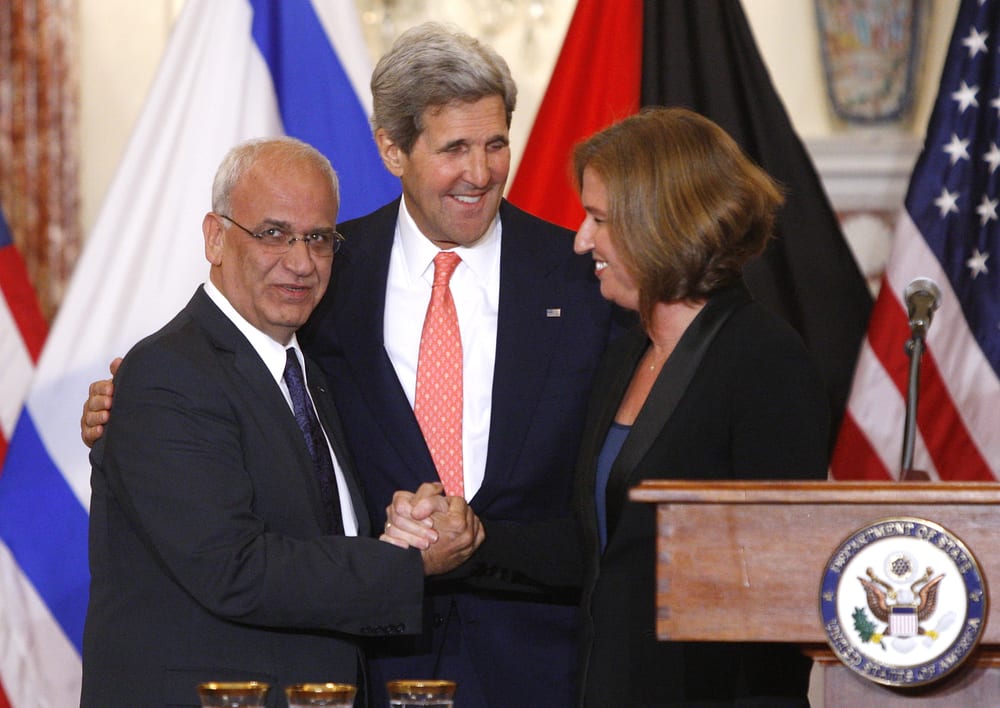
2014 could be the year of public diplomacy, particularly throughout the Middle East where citizens continue to exercise enormous influence over the direction of events on the ground, from Iraq to Syria, and from Israel to the West Bank. Public opinion in the U.S. matters, as does public opinion “of” the United States around the world in an interdependent world.
As Secretary of State John Kerry makes his tenth peacemaking trip to the region to broker a “framework” between the Israelis and Palestinians, the looming question is the degree to which ordinary citizens throughout the Middle East will pressure their own leaders to resolve conflicts in ways that avoid violence or maintain the status quo. The region is a giant puzzle with interlocking pieces and interdependent variables from economic stability to physical security. For the United States, shaping a positive outcome in this region is a tall order at a time of decentralized decision-making in much of the region where the U.S. is trying to contribute to stability. It is a tall order, but a vital one.
Official government-to-government relations will need to work in tandem with government-to-citizen relations in 2014 to take into account all the actors and voices in the Middle East drama of today. A critical pillar of 2014 foreign policymaking rests in trying to achieve some equilibrium and public calm to lower the levels of violence which, left unchecked, threaten all of us, everywhere.
American citizens should be supportive of American leadership as it tackles the thorny issues of countering violent extremism overseas and bringing about peaceful settlements of frozen conflicts—be they conflicts with Iran over nuclear weapons, or between Israelis and Palestinians over land and security. American political will is best exercised with American public sentiment behind it.
What we know from past few years is how volatile public opinion in the region is, and how quickly the public mood can swing, making traditional diplomacy all the more difficult given 24-hour news cycles, the transfer of money and weapons, and the shifting political winds that make predictions difficult. The rise of extremist groups seeking to take advantage of all the uncertainty adds another layer of complexity to al already complex situation everywhere from Cairo to Teheran, from Baghdad to Beirut.
Shaping public opinion requires paying close attention to national mood swings. For ordinary citizens, the direction of the economy, local unemployment, political representation, access to education and information, and day-to-day security top the list of concerns that impact how people behave. Those are shared concerns around the world best realized without violence.
Let’s hope for bipartisanship and public support for peacemaking in the year ahead.

